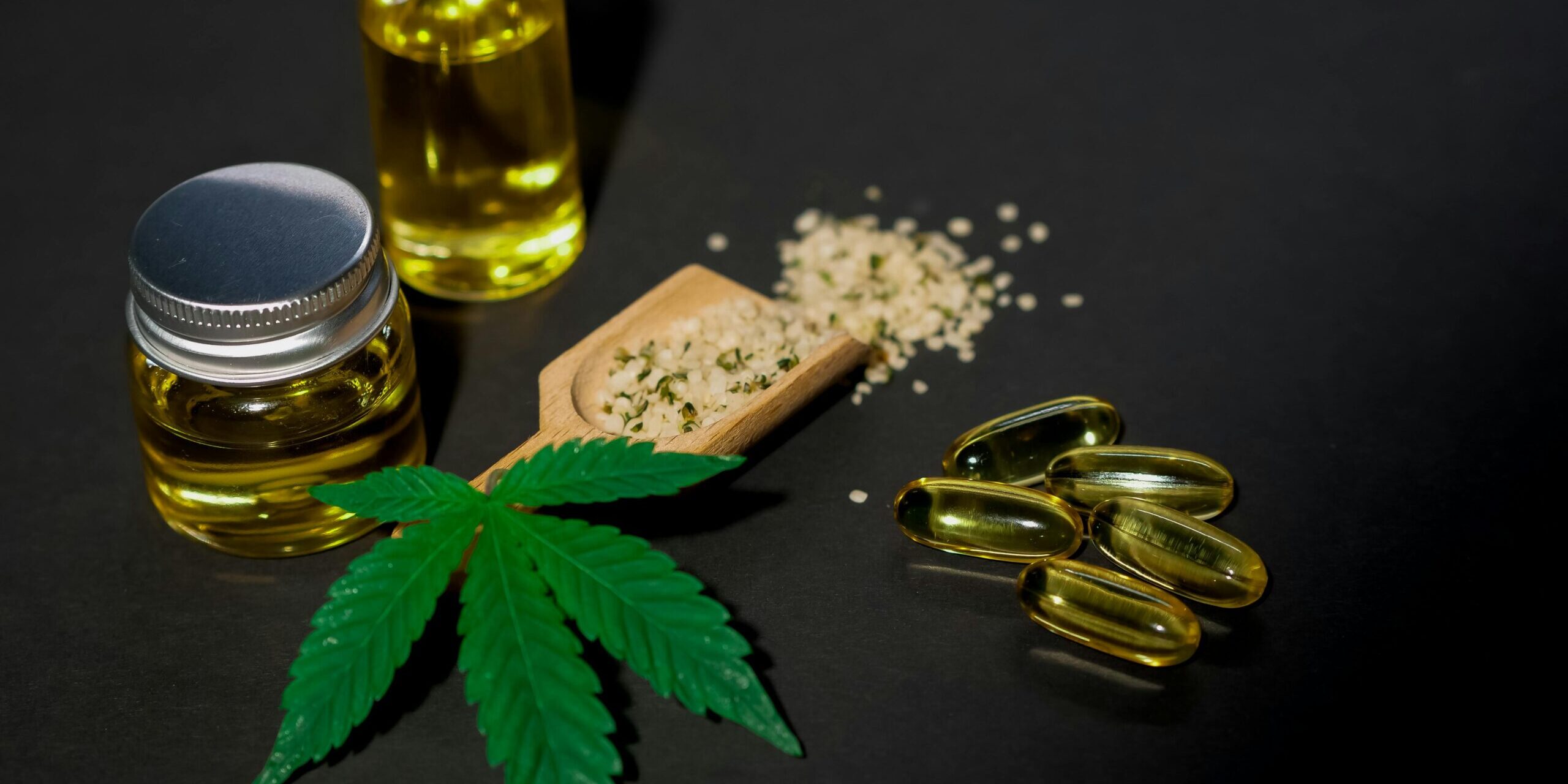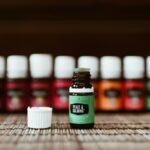I often hear people talking about CBD oil with a mix of curiosity and excitement. You might have noticed it too, shop windows displaying bottles of CBD oil and online forums bustling with discussions on its benefits. Unlike its famous cousin THC, which is known for its psychoactive effects, CBD or cannabidiol is gaining acclaim for its potential therapeutic properties without the high.
CBD oil comes from the same plant family as marijuana, but don’t let that fact fool you. The oil has unique characteristics, as it’s rich in CBD and low in THC, the compound that causes marijuana’s mind-altering effects. This distinction is crucial because it allows for the benefits of the cannabis plant without the stigma or legal complications associated with marijuana.
In this era where natural and plant-based products are being pursued avidly, CBD oil stands out as a particularly intriguing option. People are looking for holistic approaches to manage their health, and CBD oil is a fitting addition to that list. But what exactly goes into that small bottle that makes it so sought-after? Let’s take a closer look and set the stage for a deeper understanding.
Understanding the Basics: What Exactly Is CBD Oil?
I find it’s important to start with a solid foundation. So, what is CBD oil? At its core, CBD, or cannabidiol, is one of many compounds known as cannabinoids that are found in the cannabis plant. Unlike its well-known cousin THC (tetrahydrocannabinol), CBD is not psychoactive, meaning it doesn’t cause the ‘high’ associated with cannabis.
CBD oil is made by extracting the CBD compound from the stalks, leaves, and flowers of hemp plants, which contain high levels of CBD and low levels of THC. The extract is then diluted with a carrier oil to create the final product. The market offers various carrier oils, each lending different characteristics to the CBD oil.
The quality and properties of CBD oil can vary greatly depending on several factors. These include the strain of cannabis plant used, the method of extraction, and the presence of other cannabinoids and terpenes. Terpenes, by the way, are aromatic compounds also found in the cannabis plant. They are thought to work synergistically with cannabinoids to enhance the effects of CBD oil.
As we continue to navigate the intricate landscape of CBD oil ingredients, keep in mind the significance of each component and how they work together to create the distinct profiles of the CBD oil we find on the shelves.
Peeking Inside the Bottle: Ingredients Commonly Found in CBD Oil
When you consider adding CBD oil to your wellness routine, it’s crucial to know what you’re putting into your body. The core ingredient in all CBD oil products is, unsurprisingly, cannabidiol (CBD). This compound is hailed for its potential therapeutic effects without the ‘high’ associated with THC.
CBD isn’t the only component of these oils, though. Carrier oils, such as MCT oil or hemp seed oil, play a significant role. They aid in the delivery and absorption of CBD, ensuring your body can utilize it effectively.
Additionally, some manufacturers include extra ingredients like flavorings to enhance the taste, or preservatives to extend shelf life. While these can make the product more palatable or last longer, always check for natural and safe additions.
It’s worth noting that quality brands are transparent about what goes into their products. They’ll provide detailed information, usually on labels or online product descriptions, so you can be well-informed about what you are using.
The Spectrum of Choices: Types of CBD Oil Explained
Walking down the aisle of a health store or scrolling through an online marketplace, you might notice that CBD oil doesn’t come in a ‘one-size-fits-all’ bottle. In fact, there’s a distinct variety of products available: full-spectrum, broad-spectrum, and CBD isolate. Let’s break down what each type offers so you can make an informed decision.
First up is full-spectrum CBD oil, a form that encompasses all phytochemicals naturally found in the cannabis plant, including CBD, trace cannabinoids, terpenes, oils, and sometimes small amounts of THC. This composition may contribute to what is known as the ‘entourage effect,’ where the combined ingredients potentially enhance the oil’s natural benefits.
If THC is a concern, either due to personal preferences or legal restrictions, broad-spectrum CBD oil is a viable option. It offers a middle ground with a wide range of cannabinoids and terpenes, yet, crucially, it excludes the psychoactive THC.
For those seeking the purest form of CBD, CBD isolate stands out. This product strips away all other cannabinoids and compounds to deliver more than 99% pure CBD. It might appeal to users with sensitivity to other cannabinoids or who require higher doses of CBD in their regimen.
Your choice among these types dictates the potential experience you’ll have with CBD. Individuals interested in the holistic approach of herbal supplementation tend to gravitate toward full-spectrum products, while CBD isolate is often favored by those seeking targeted effects.
As we transition towards understanding the potential benefits these different oils may offer, it’s worth noting that the specific type of CBD oil could play a role in the efficacy of these benefits. That’s because the compounds found in each type interact with our bodies in unique ways.
The Therapeutic Potentials of CBD Oil: What Research Tells Us
Cannabidiol, commonly referred to as CBD, is gaining recognition not just among natural wellness enthusiasts but also in the scientific community. The reason is simple: growing research suggests CBD oil may have a range of health benefits. When I mention health benefits, it’s essential to remember we’re in the realm of potential, backed by varying degrees of scientific evidence.
You might be curious about what these benefits are. CBD oil has been studied for its possible role in easing symptoms of many common health issues, including anxiety, depression, acne, and heart disease. For those with cancer, it may even provide a natural alternative for pain and symptom relief. Considering anxiety, for example, research highlights that CBD may help reduce stress and could play a role in improving sleep patterns.
Of course, I’m not overlooking the fact that when it comes to managing any health condition, nothing replaces professional medical advice and interventions. Yet, it’s hard not to pay attention to the stories of individuals who have found relief through the use of CBD oil where conventional treatments fell short.
As of my last update, more work is needed to fully understand the efficacy and safety of CBD oil. The enthusiasm for CBD oil should be matched with caution, and I always encourage thorough research and discussions with healthcare professionals, especially as this market continues to evolve.
Buyer Beware: Ensuring Quality and Safety When Choosing CBD Oil
In an industry that’s rapidly growing, the responsibility to choose a high-quality CBD oil that’s also safe rests on you, the consumer. Not all CBD oils are created equal, and making an informed decision is paramount to ensuring you benefit from its therapeutic potential without any unnecessary risks.
When browsing for CBD oil, start by seeking out reputable brands. A reliable indicator of quality is the availability of third-party lab test results, which verify the product’s cannabinoid profile and confirm the absence of harmful substances such as heavy metals or pesticides.
Labeling holds key information. Go beyond the attractive packaging and examine the contents listed. Look for phrases like ‘lab-tested’, ‘GMO-free’, ‘organically grown’ or ‘CO2 extraction’ – these phrases often signal a commitment to quality in the CBD industry.
The dosage and usage instructions provided by manufacturers are more than a mere suggestion. Adhering to recommended guidelines can be the difference between experiencing benefits or encountering unwanted side effects. Remember, more isn’t always better, especially with a potent substance like CBD.
Lastly, I can’t stress enough the importance of consulting with your healthcare provider before adding CBD oil to your routine. Health experts can offer personalized advice, fitting CBD oil into your lifestyle in a way that complements your overall well-being strategy.









